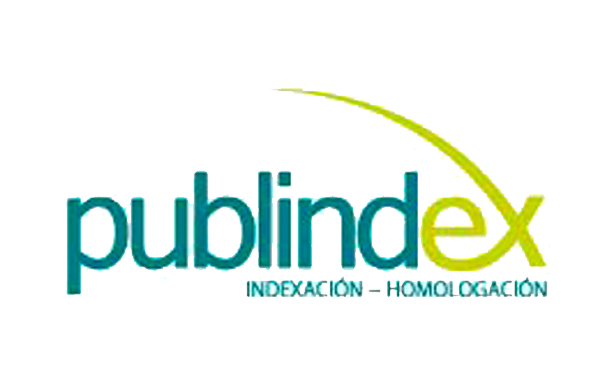Genealogy of creative thinking and its need in university reality
Abstract
In this article we review the foundational literature of the development of thought in interaction with creativity as an essentially human activity, analyzed in a university context. The research addresses a global university environment in which creativity, on the one hand, is strengthened by art and play, and on the other, due to globalized phenomena, is subjected to innovation, economic productivity and marketing, among others, which Modify the educational reality. The relevance of the study is in a situation of generational impact, given the increasing difficulty of university professors in attracting students to knowledge, since they are currently seduced by contemporary hedonism and social life.The research had a mixed method in the first stage by a hermeneutic activity, then deep interviews were conducted with specialized teachers who develop creative didactics, and finally two courses were conducted with teachers to put into practice the creative teaching proposal. As a main conclusion, it was argued that thought develops in relation to the type of society from which it emerges, and in the university classroom emanates from creativity. It is a dual activity, logical-emotional, and the result of this interaction flows knowledge as a social construction.Downloads
References
Barrena, S. (2008). Charles Peirce: razón creativa y educación. Utopía y Praxis Latinoamericana, 11-38.
Bauman, Z. (2008). Los retos de la educación en la modernidad líquida. Barcelona, Cataluña, España: Gedisa.
Bergson, H. (1977). Memoria y Vida. (T. e. Deleuze, Ed., & M. Armiño, Trad.) Madrid: Alianza, editorial.
Bohm, D. y. (2007). Ciencia, orden y creatividad. las raíces creativas de la ciencia y la vida (Cuarta ed.). (J. M. Apfelbäume, Trad.) Barcelona, Cataluña, España: Kairós.
Canals, F. (diciembre de 2009). e-aquinas.net. Recuperado el 21 de mayo de 2017, de e-aquinas: http://www.e-aquinas.net/epoca2/de-la-verdad/numerus.pdf
Cassirer, E. (2012). Antropología filosófica (Vigesimoséptima ed.). (E. Ímaz, Trad.) México D.F., México: Fondo de Cultura Económica.
Cheng, S. K. (2000). Indicador de creatividad: comportamiento creativo del profesor, un estudio preliminar de validación. (I. N. Singapur, Ed.) Journal of creative behavior, 34(2), 34-48.
Chomsky, N. (octubre de 1975). psicopsi.com. Recuperado el 30 de octubre de 2015, de Encuentro en Royaumont. el debate entre Jean Piaget y Noam Chomsky: http://psicopsi.com/ENCUENTRO-EN-ROYAUMONT-EL-DEBATE-ENTRE-JEAN-PIAGET-NOAM-CHOMSKY
Chomsky, N. (29 de noviembre de 2002). cronicon.net. Recuperado el 28 de mayo de 2015, de http://www.cronicon.net/paginas/Documentos/paq2/No.34.pdf
Damasio, A. (2011). El error de Descartes: la razón, la emoción y el cerebro humano. Barcelona: Ediciones Destino.
De Sousa Santos, B. (2005). La Universidad del Siglo XXI. Para una reforma democrática y emancipadora de la universidad (1a ed.). (E. c. 2004, Ed., & R. M. Cardona, Trad.) México, Distrito Federal, México: Centro de investigaciones interdisciplionarias en Ciencias y Humanidades. Universidad Autónoma de México.
Descartes, R. (1981). El discurso del método (1a en español ed.). (P. barros, Ed., & F. Romero, Trad.) Barcelona, Cataluña, España: Biblioteca clásica y contemporánea Lozada.
Descartes, R. (1986). Meditaciones metafísicas (1a ed.). (V. Ortega, Ed., & C. Bergés, Trad.) Barcelona, Cataluña, España: Aguilar.
Frazer, S. J. (1981). La rama Dorada: magia y religión. (E. y. Campuzano, Trad.) Madrid, España: Fondo de Cultura Económica.
Gadamer, H.-G. (1998). Estética y hermenéutica. Madrid: Técnos.
Leontiev, A. (2011). Los principios del desarrollo mental y el problema del retraso mental. En L. &. Vigotsky, Psicología y Pedagogía (M. E. Benitez, Trad., 4a ed., pág. 317). Sevilla, Andalucía, España: Publidisa.
Lévi-Straus, C. (1988). Tristes Trópicos (1a. en castellano ed.). (M. Cubí, Ed., & N. bastard, Trad.) Barcelona, Cataluña, España: Paidós Ibérica.
Mendoza, M. (mayo de 24 de 2014). El neoliberalismo tomó por asalto las universidades. El Espectador, pág. 12.
Maldonado, M. Á. (2006). Competencias, método y genealogía. pedagogía y didáctica del trabajo (1a ed.). (A. Gutiérrez, Ed.) Bogotá, Distrito Capital, Colombia: Ecoe.
Malinowski, B. (1982). Magia, ciencia, religión (2da ed.). (A. P. Ramos, Trad.) Barcelona, Cataluña, España: Ariel.
Morín, E. (2011). Los siete saberes necesarios para la educación del futuro. Madrid: Paidós.
Piaget, J. (1972). estudios de psicología genética. (A. M. Datro, Trad.) París, Francia: Emecé Editores.
Piaget, J. (1991). Seis estudios de Psicología (1a. en español ed.). (J. Marfa, Trad.) Barcelona, Cataluña, España: Labor.
Tobón, S. (2007). Competencias en la educación superior. Políticas hacia la calidad (1a. Edición, 2da. reimpresión ed.). (A. G. Kimpres, Ed.) Bogotá, Distrito Capital, Colombia: Ecoe.
Vigotsky, L. (1989). El desarrollo de los procesos psicológicos superiores (Traducción de la segunda edición ed.). (M. Cole, Ed., & S. Furió, Trad.) Barcelona, Cataluña, España: Grupo editorial Grijalbo.
Vigotsky, L. (1995). Pensamiento y lenguaje. Barcelona: Paidós Ibérica.
Vigotsky, L. S. (2006). Obras escogidas IV. psicología infantil. Madrid: Machado Libros.
Vygotski, L. S. (2001). Obras Escogidas: problemas de psicología general (Segunda en Español ed., Vol. II). (V. Davydov, Ed.) Madrid, España: Machado.
Creative Commosn Licence 4.0








